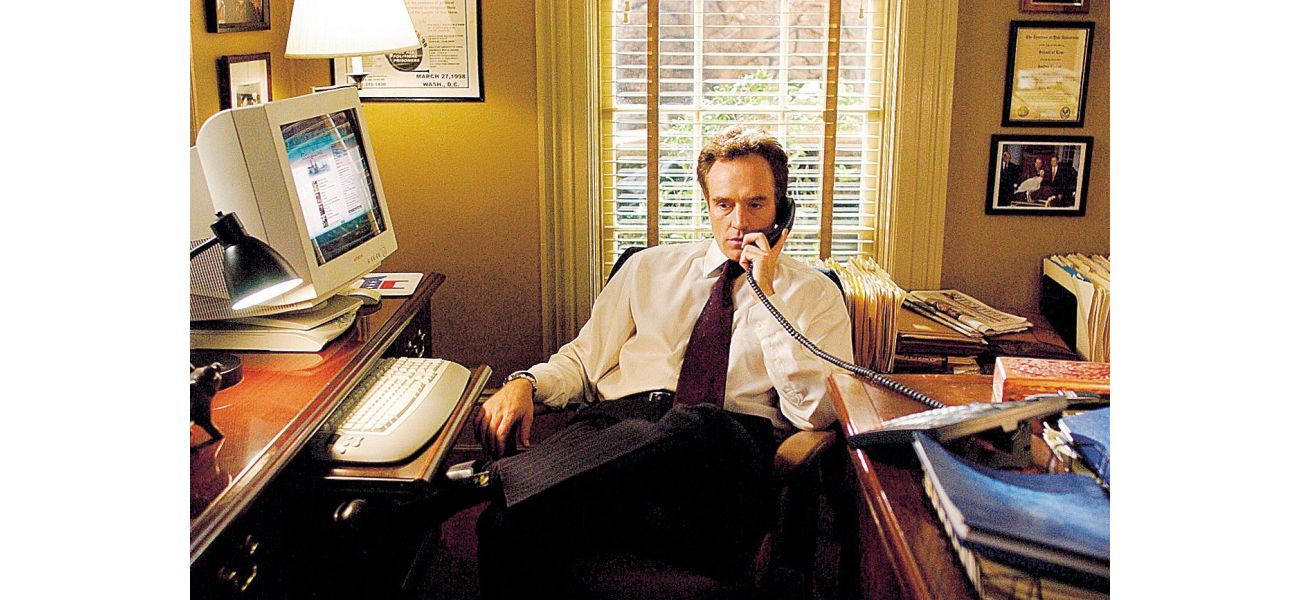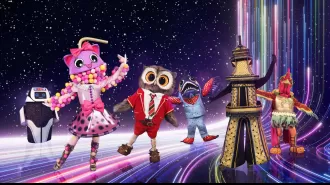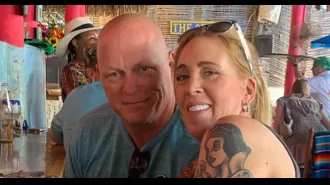I still admire Josh from The West Wing, but after 25 years, he's lost his charm.
The West Wing was a utopia for liberals while George W. Bush was in office.
November 8th 2024.

As a teenager, I was enamored with The West Wing and its charismatic characters. Among them was Josh Lyman, the Deputy Chief of Staff for President Josiah Bartlet. With his quick wit, passion for his job, and inner turmoil over past tragedies, Josh was easily my favorite male character on the show. And let's not forget his long-suffering assistant, Donna Moss, who was clearly in love with him. It was a classic slow-burn office romance that had me swooning.
But as I rewatched the show in my adulthood, I couldn't help but notice a glaring issue: sexism. It became increasingly apparent to me that The West Wing, despite being heralded as one of the greatest TV shows of all time, had a problem with how it portrayed its female characters.
Looking back now, I can see how my younger self may have romanticized Josh's character. Sure, he was brilliant and charming, but his treatment of women was not always commendable. And it wasn't just Josh. The show's creator, Aaron Sorkin, had a tendency towards sexism in his writing, as seen in other projects such as The Social Network and The Newsroom.
While Sorkin did create strong female characters like Press Secretary CJ Cregg and the President's wife, Abbey Bartlet, they were often used as a tool to explain complicated political situations to the audience. And when male characters did compliment or interact with women, it was often done in a sexist manner. For example, Sam Seaborn telling a female colleague that she could make a good dog break his leash, or the President referring to a female colleague as a "sex kitten."
Even Ainsley Hayes, a smart and capable Republican lawyer who joins the White House staff, is not immune to this treatment. Despite offering valuable counsel and defending her opposing values, her male colleagues often focus on her looks rather than her abilities. It's disheartening to see such a strong female character reduced to her appearance.
And it's not just the high-ranking female characters who are affected. The secretaries in the show are often belittled and blamed by their male bosses, even if it's meant to be seen as banter. It's a stark reminder of the everyday sexism that many women face in the workplace.
As much as I love The West Wing and Aaron Sorkin's writing, I can't ignore the problematic portrayal of women in the show. It's a reminder that even our favorite TV shows and creators are not immune to perpetuating harmful stereotypes and behaviors.
When I was a teenager, I was completely smitten with Josh Lyman from The West Wing. Played by the talented Bradley Whitford, Josh was everything I looked for in a man – smart, funny, and passionate about his job as Deputy Chief of Staff for President Josiah Bartlet. He even had a tragic backstory that made him all the more sympathetic. And let's not forget his quick wit and neuroses, which made him the Chandler Bing of the show. Plus, his assistant Donna Moss was clearly in love with him, making for a fun and slow-burn office romance. Swoon.
But as I've grown older and rewatched the show, I've noticed a glaring issue that I hadn't caught onto before – sexism. It's especially evident in Josh's character, who was once my ultimate TV crush. Don't get me wrong, I still adore The West Wing and its liberal haven during the Bush presidency. But with the benefit of hindsight, I can see how the show's portrayal of women and their relationships with male characters was problematic.
One of the show's most popular characters, Josh, is known for his fast-paced walk-and-talk scenes and clever one-liners. And while these traits still make him a fan favorite, they also overshadow the sexist behavior he exhibits. For instance, he often dismisses his assistant Donna's capabilities and her obvious feelings for him. And let's not forget the time he showed up to work hungover and wearing a fisherman's suit after a wild night out.
But it's not just Josh. The show's creator, Aaron Sorkin, has also been criticized for his sexist tendencies in his writing. While he did create strong female characters like Press Secretary CJ Cregg and the President's wife, who is a doctor, they were often used as clueless audience surrogates, relying on their male colleagues to explain complicated political situations.
And let's not forget about Sam Seaborn's infamous line about a female colleague being able to "make a good dog break his leash." While it's called out as possibly misogynistic in the show, it's not addressed as fiercely as it would be today. Even Ainsley Hayes, the clever Republican lawyer who joins the White House staff, is not immune to the show's sexism. Despite her valuable contributions and capable defense of her opposing values, her male colleagues can't help but focus on her looks. And even the President refers to her as a "sex kitten."
But it's not just the high-ranking female characters who face sexism. The secretaries are often belittled and blamed by their male bosses, disguised as harmless banter. Yet, they are the ones running the show, handling numerous meetings and deadlines with ease.
As much as I still love The West Wing, I can't help but reflect on how differently I view the show and its characters now. Maybe it's because I'm older and more aware, or maybe it's because times have changed and our standards have evolved. Either way, I can't deny that there are problematic elements in the show's portrayal of women. And while I still appreciate the show's political idealism and witty banter, I can't help but acknowledge its flaws.
But as I rewatched the show in my adulthood, I couldn't help but notice a glaring issue: sexism. It became increasingly apparent to me that The West Wing, despite being heralded as one of the greatest TV shows of all time, had a problem with how it portrayed its female characters.
Looking back now, I can see how my younger self may have romanticized Josh's character. Sure, he was brilliant and charming, but his treatment of women was not always commendable. And it wasn't just Josh. The show's creator, Aaron Sorkin, had a tendency towards sexism in his writing, as seen in other projects such as The Social Network and The Newsroom.
While Sorkin did create strong female characters like Press Secretary CJ Cregg and the President's wife, Abbey Bartlet, they were often used as a tool to explain complicated political situations to the audience. And when male characters did compliment or interact with women, it was often done in a sexist manner. For example, Sam Seaborn telling a female colleague that she could make a good dog break his leash, or the President referring to a female colleague as a "sex kitten."
Even Ainsley Hayes, a smart and capable Republican lawyer who joins the White House staff, is not immune to this treatment. Despite offering valuable counsel and defending her opposing values, her male colleagues often focus on her looks rather than her abilities. It's disheartening to see such a strong female character reduced to her appearance.
And it's not just the high-ranking female characters who are affected. The secretaries in the show are often belittled and blamed by their male bosses, even if it's meant to be seen as banter. It's a stark reminder of the everyday sexism that many women face in the workplace.
As much as I love The West Wing and Aaron Sorkin's writing, I can't ignore the problematic portrayal of women in the show. It's a reminder that even our favorite TV shows and creators are not immune to perpetuating harmful stereotypes and behaviors.
When I was a teenager, I was completely smitten with Josh Lyman from The West Wing. Played by the talented Bradley Whitford, Josh was everything I looked for in a man – smart, funny, and passionate about his job as Deputy Chief of Staff for President Josiah Bartlet. He even had a tragic backstory that made him all the more sympathetic. And let's not forget his quick wit and neuroses, which made him the Chandler Bing of the show. Plus, his assistant Donna Moss was clearly in love with him, making for a fun and slow-burn office romance. Swoon.
But as I've grown older and rewatched the show, I've noticed a glaring issue that I hadn't caught onto before – sexism. It's especially evident in Josh's character, who was once my ultimate TV crush. Don't get me wrong, I still adore The West Wing and its liberal haven during the Bush presidency. But with the benefit of hindsight, I can see how the show's portrayal of women and their relationships with male characters was problematic.
One of the show's most popular characters, Josh, is known for his fast-paced walk-and-talk scenes and clever one-liners. And while these traits still make him a fan favorite, they also overshadow the sexist behavior he exhibits. For instance, he often dismisses his assistant Donna's capabilities and her obvious feelings for him. And let's not forget the time he showed up to work hungover and wearing a fisherman's suit after a wild night out.
But it's not just Josh. The show's creator, Aaron Sorkin, has also been criticized for his sexist tendencies in his writing. While he did create strong female characters like Press Secretary CJ Cregg and the President's wife, who is a doctor, they were often used as clueless audience surrogates, relying on their male colleagues to explain complicated political situations.
And let's not forget about Sam Seaborn's infamous line about a female colleague being able to "make a good dog break his leash." While it's called out as possibly misogynistic in the show, it's not addressed as fiercely as it would be today. Even Ainsley Hayes, the clever Republican lawyer who joins the White House staff, is not immune to the show's sexism. Despite her valuable contributions and capable defense of her opposing values, her male colleagues can't help but focus on her looks. And even the President refers to her as a "sex kitten."
But it's not just the high-ranking female characters who face sexism. The secretaries are often belittled and blamed by their male bosses, disguised as harmless banter. Yet, they are the ones running the show, handling numerous meetings and deadlines with ease.
As much as I still love The West Wing, I can't help but reflect on how differently I view the show and its characters now. Maybe it's because I'm older and more aware, or maybe it's because times have changed and our standards have evolved. Either way, I can't deny that there are problematic elements in the show's portrayal of women. And while I still appreciate the show's political idealism and witty banter, I can't help but acknowledge its flaws.
[This article has been trending online recently and has been generated with AI. Your feed is customized.]
[Generative AI is experimental.]
0
0
Submit Comment





